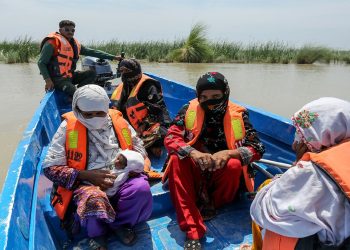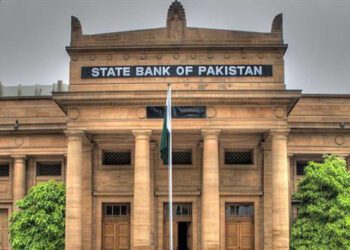In his presidential address to the people of Kazakhstan on first September, President Kassym-Jomart Tokayev has proposed a national referendum to seek the approval or rejection of the construction of a Nuclear Power Plant (NPP) in the country. It would be a new paradigm for the country, said Ambassador Yerzhan Kistafin in a press briefing.
The idea of building a Nuclear Power Plant has not arisen out of the blue. There have been frequent power outages in Kazakhstan in recent years. Problems with electricity at the end of January 2022 in Almaty and a number of regions of Kazakhstan have been cited in the proposal’s favor. It is very likely that these problems will only get worse in the future. Moreover, the country is already experiencing an acute shortage of electricity, and the implementation of this project would allow Kazakhstan to halt importing electricity and be less dependent on neighboring countries. In general, the use of peaceful atomic power is gaining momentum all over the world. Today, nuclear power is the most important sub-sector of global energy and makes a significant contribution to global electricity production.
Kazakhstan in the leadership of President Kassym-Jomart Tokayev is reshaping its economy, and taking all the possible measures to explore national development, welfare of its people, and bilateral and multilateral trade and industry cooperation. In the last couple of years, Kazakhstan has taken the central place in almost all the regional forums by hosting them or by its proactive participation. For all the industrial and trade initiatives, the energy-deficient Kazakhstan needs uninterrupted power supply. It is indeed an upright and virtuous decision of President Tokayev to go to the people of the country to make a new paradigm decision. I believe that the people of Kazakhstan will welcome the shift of paradigm to enhance the clean energy sector. Other means of clean energy shall also be explored.
However, there are different opinions about the feasibility of building this facility. Part of the reason that Kazakhstan has not yet built an NPP is the negative experience of the country associated with radioactive consequences as a result of nuclear tests. Ambassador Yerzhan Kistafin noted that 456 nuclear tests were conducted in Soviet times. The Kazakh people faced severe consequences of the tests, and now some of them are reluctant to accept the idea of a nuclear power plant. But, it is different from nuclear tests.
However, Kazakhstan, as the largest producer of uranium in the world, should arguably have its own nuclear generation. In this regard, it is necessary to continue public hearings and a comprehensive broad discussion on this issue.
Aidana Tastanova, a Kazakhstan national and a 4th year law student attending the Moscow State Institute of International Relations under a Kazakh government scholarship, writes: “There were also questions in Kazakh society about the competence of Kazakhstan, as a member state of the IAEA, to engage in this project and about potential violation of the Treaty on the Non-Proliferation of Nuclear Weapons of 1970. Kazakhstan has made progress in implementing the recommendations of the mission of the International Atomic Energy Agency on a comprehensive review of nuclear infrastructure.
Kazakhstan recently proposed a potential resumption of the use of nuclear energy to reduce the country’s dependence on fossil fuels, diversify the energy balance and reduce CO2 emissions. Moreover, in March 2023, a comprehensive nuclear infrastructure assessment mission visited Astana, the capital of Kazakhstan, in order to assess the country’s readiness to consciously commit to the implementation of the nuclear energy program. Subsequently, the results of the audit turned out to be positive and the areas where improvements are needed for the development of nuclear energy in Kazakhstan were identified.”
In his speech, President Kassym-Jomart Tokayev stressed on another very important aspect of the new paradigm, and it was “to strengthen Kazakhstan’s military industrial complex in every way possible.” Speaking to the joint session of the Kazakh Parliament chambers, he emphasized that all-round strengthening of the country’s military industrial complex is of paramount importance since it plays a key role in ensuring national security. The critical goal, in his words, is “to create a production cycle with high share of localization allowing to lower dependence on import deliveries.”
The changing geopolitical situation in the neighbourhood and in the region demands several defense and security measures. One of them could be equipping the Kazakh army with the most sophisticated weapons and military equipment, including armored vehicles, drones and portable firearms. It is imperative “to continue work on transfer of state-of-the-art technologies and localization of new plants.” Kazakhstan may create a special fund aimed at the development of military industrial complex “to serve as a mechanism of direct financial support of domestic enterprises.”
But, we have seen the economic repercussions of the military industrial complexes that never served the nations. Rather, they cost too much of the compromises on socioeconomic development, trade and tourism. Kazakhstan has to very carefully examine the case studies of the other nations while going to NPP or the military industrial complex. Both powers shall remain to the peaceful defense needs and its people’s welfare and development.
New Kazakhstan paradigm also includes political transformation by ensuring participation of all parties in the process of economic development. To increase the agricultural produce, Ambassador Yerzhan Kistafin believes that Kazakhstan can learn from Pakistan, and a comprehensive cooperation agreement would benefit both countries. It would reduce reliance on the imports of food grains.
Kazakhstan also has a vigorous plan to engage their youth in the Information and Communication Technologies (ICT) by enhancing the sector. Making Kazakhstan a trade transit hub would bring ample opportunities to the natives, businesses and the human capital in the neighbourhood. Pakistan can also get a good economic share in Kazakhstan’s new vision and paradigm, but with proactive bilateral strategies and engagement.






























